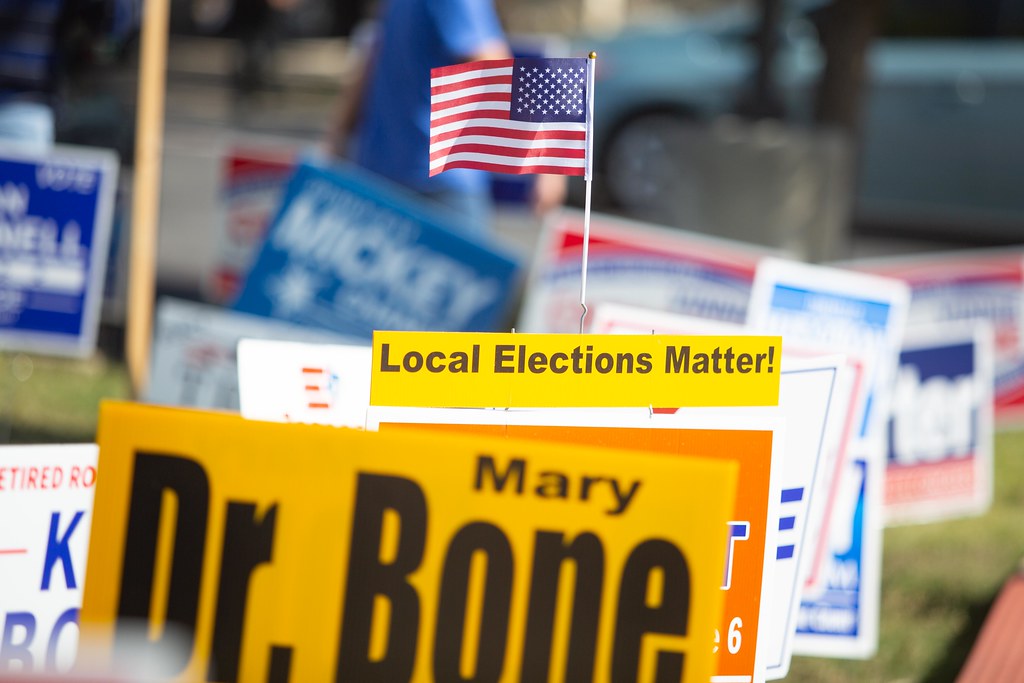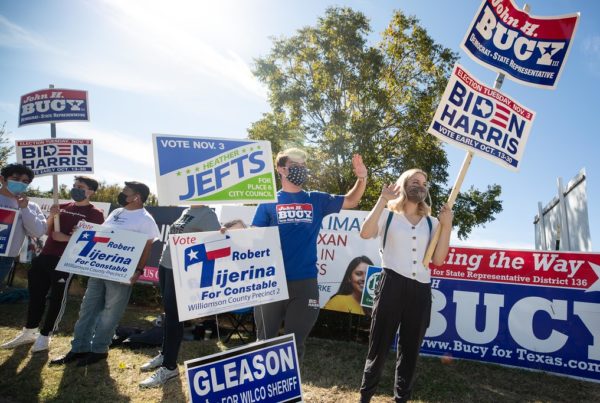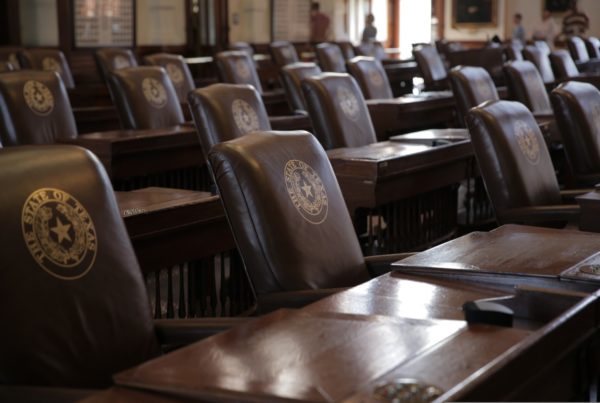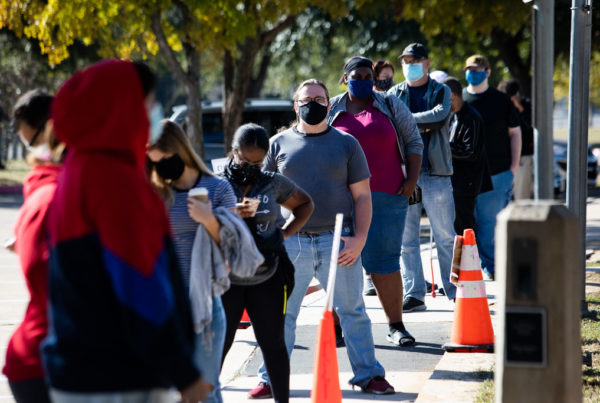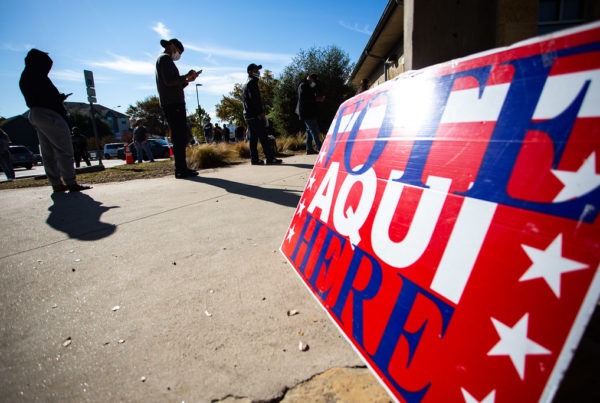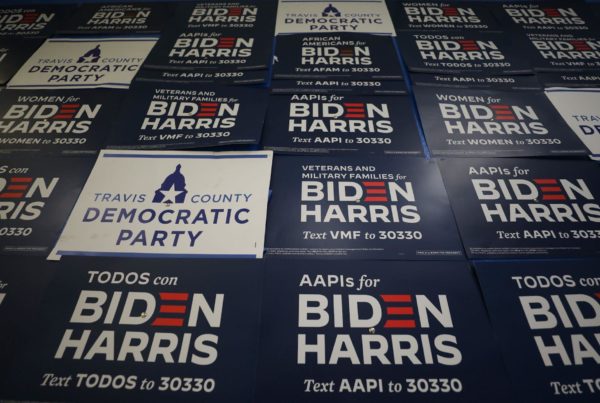As polls leading up to Election Day showed Democrat Joe Biden in what appeared to be a close race against President Donald Trump in Texas, some analysts predicted this could be the election that shifted the state from red to blue – or at least purple. But after Tuesday, it’s clear that Texas is still a reliably Republican state.
Brandon Rottinghaus, professor of political science at the University of Houston, told Texas Standard that the interplay between local and national politics had different effects on each candidates’ success here on Tuesday. For Republicans, any misgivings voters may have had about Trump did not translate into losses for Republicans down the ballot.
“Donald Trump’s numbers were not as good as they were for local Republicans. So Donald Trump may not have been very popular, but the Republican brand is still pretty popular down ballot,” Rottinghaus said.
Biden’s national strategy, on the other hand, which included a phasing out of fossil fuel production, likely hurt him on a local level especially in Texas districts partial to the oil and gas industry.
“That was really a problem, I think, for a lot of swing districts in suburban areas, especially here in Houston,” he said.
Despite concerns about an end to straight-ticket voting in the state, Rottinghaus says Republicans still ran a successful “ground game,” holding onto or winning districts even when Trump may have been less popular than local Republican candidates, and even as those candidates faced increased pressure from Democratic challengers.
“They were able to pivot from what happened in 2018 and steer into the skid to be able to give them a chance to fight for their future,” he said. “It wasn’t a failure for Democrats, [but] it was a success for Republicans.”
What perhaps stood out most in Election Day results was the difference between the polls and the actual results. Trump won Texas by 6 percentage points – a larger gap than what earlier polls predicted. Rottinghaus says it’s a reason to, once again, rethink political polling.
“The expectations were that you see shifting of suburban areas to the Democrats; that didn’t happen in big numbers. You expected to see a rising Latino vote; that didn’t happen in big numbers. It’s hard to model a moving target,” Rottinghaus said.
It also speaks to the country’s political polarization. He suspected some voters “were unwilling to give their true opinion” to pollsters.


